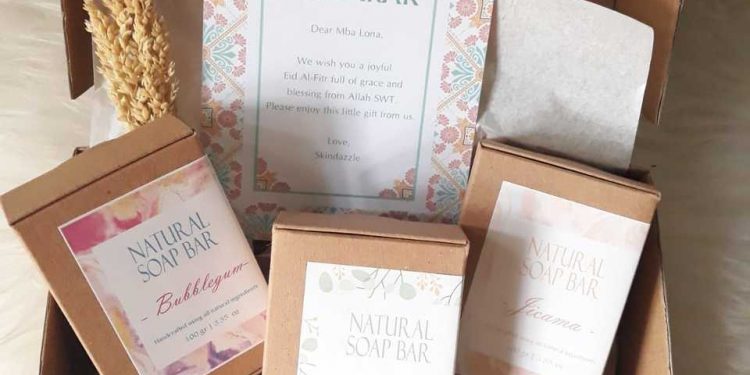The long-standing tradition of sending packages of goods to relatives in the days leading up to Idul Fitri served a different purpose this year: rather than merely for maintaining good relations it also breathed new life into struggling small businesses during the Covid-19 pandemic.
Instead of sending the usual dinnerware sets or assorted cookies, customers put in orders to their favorite restaurants or online shops for parcels to send to their friends and families.
Ana, a 25-year-old housewife from Bekasi, ordered parcels of “pempek,” traditional fried dumplings from South Sumatra, from an acquaintance to send to relatives for Idul Fitri.
“I usually bake [cookies] for Idul Fitri, but I had no time this year so I sent pempek hampers. Besides, frozen foods seem to be a good choice to gift to people when they spend most of their time at home,” Ana told.
“The store owner is a relative of a good friend of mine so I could be sure the food was hygienic as well,” Ana said.
Ana was among thousands of Indonesia who sent non-traditional hampers for Idul Fitri this year, not only to show they still think of their families and friends during the pandemic but also to help their new small businesses, many of which were started when they lost their jobs from the coronavirus crisis.
The hamper trend also offered a critical lifeline to struggling SMEs.
Proza Yulisman, who runs the Katalogue bakery and coffee shop with his wife and more than a dozen staff, had to turn to online sales to save his business after the large-scale social restriction decimated sales from walk-in customers.
Sales from his chain of shops fell 80 percent and Proza was forced to close three branches and put staff members on rotation in the remaining two shops.
They now make bottled lattes to sell on Tokopedia. Close to Idul Fitri, Proza started offering hampers combining the bottled coffee with cookies from the bakery.
The online turn proved a success. “Sales have almost returned to normal. Around 20 percent of our sales come from customers making bulk orders to send to friends or relatives,” Proza said.
Depok-based handmade soap maker Skindazzle also had a similar experience. “From March to April, our monthly turnover dropped almost 70 percent,” owner Ayu Ratna.
“People would think twice before shopping for skincare because they didn’t see it as essential. But then we tried to get creative after seeing similar businesses to ours offering parcels of beauty products,” Ayu said.
Even though at the moment she intends to focus on restocking – thanks to the craze for hampers – Ayu said she plans to continue selling hampers for as long as she could.
The gain from the hamper craze spilled over to basket makers as well. It became an Idul Fitri boon for more than 20 artisans and tailors at Bengok Craft in Semarang, Central Java, who make souvenirs from water hyacinth in the area.
Bengok Craft made the baskets for the hampers, while the other SMEs make local traditional snacks to fill them in.



